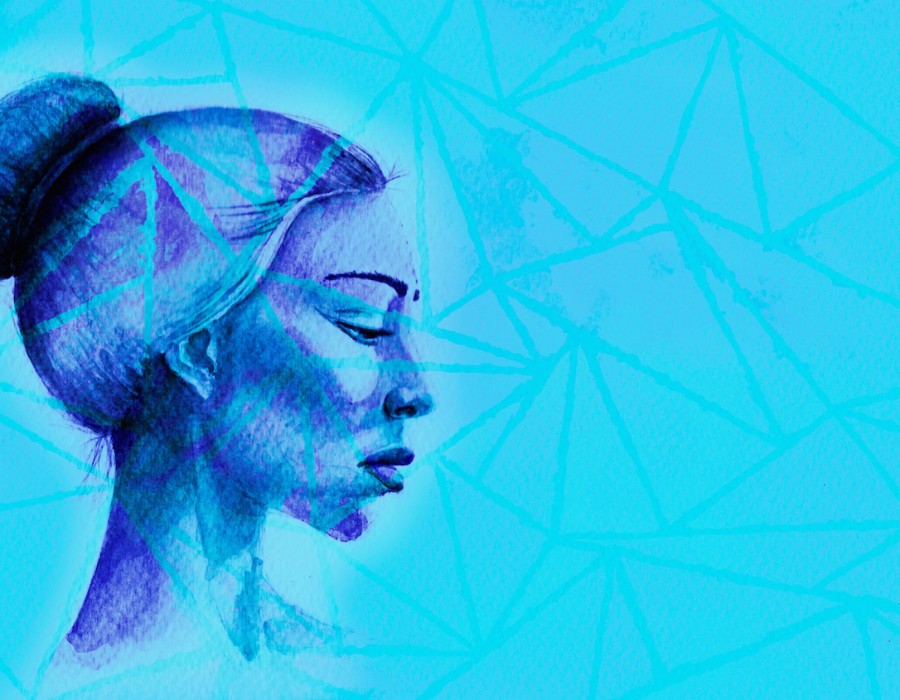“Obstacles do not block the path, they are the path.”
~Zen proverb
I thought the concept of a “cold sweat” was unreal and paradoxical until the evening of August 27, 2014. That was my first cold sweat. My first of a lot of things.
My heart jack-hammered in my chest.
I heard my pulse in my ears.
I gasped for air on my dorm room floor in New York, while my mom tried to calm me down on the other end of the phone in Los Angeles.
“It’s just a panic attack, sweetie. Just breathe deep.”
No, no, no, I thought. Panic couldn’t possibly evoke this kind of physiological response. My arm hurt, my chest hurt. Was it possible to have a heart attack at age nineteen?
I didn’t sleep for days after that. I was afraid I wouldn’t wake up again.
Every night, I would set my laptop on my nightstand. A close family friend with insomnia agreed to stay on Skype with me all night long while I slept so that I wouldn’t feel so alone. She stayed up with me three nights in a row.
I stopped attending classes, social functions, and missed almost the entire first week of my sophomore year of college.
Finally, on the night of August 31, I decided to take a walk with some friends. Those same feelings as that night in my dorm room came over me. They took me to the emergency room. An EKG, blood pressure test, and Xanax later, the doctor came in.
“Tell me a little bit about what’s going on with you.”
“Well, I keep feeling like I can’t breathe, sometimes my heart starts to—”
“No,” he interrupted. “Tell me what’s going on with you. Not your body.”
I looked at him perplexed for about ten seconds, and began. I told him that my father died suddenly in a hit-and-run crash in December. I told him I had to come right back to school afterward because my scholarship was riding on my attendance. I told him how heartbroken, lost, and alone I felt living on the opposite side of the country—away from my family—during the worst period of my life.
He told me what I had been vying to hear for months.
“You need to go home.”
Without argument, I nodded, went back to my dorm room, and told my mom to book my flight. I knew I had to go home, but hearing that vocal validation was what I truly needed. Within minutes, months of torment and post-traumatic stress melted into relief.
Unfortunately, while the doctor told me what I had been longing to hear, he also diagnosed me with generalized anxiety disorder and panic disorder. Even upon returning to LA, starting a new school, a new job, and a new life, waves of panic continued to ravage my mind and body. And they always hit unexpectedly.
Although I came home to properly cope with my grief, that task was still put by the wayside. Now, I had to deal with my anxiety and panic first. I had to find the right pills, the right dose. No matter what pills or what dose, I felt emotionally hollowed.
In attempts to keep my anxiety levels down, the pills were making me tired all the time. I didn’t experience any more anxiety or depression, but I didn’t experience happiness or joy either. I had to try something else.
In the boredom of a frigid December night, three years into my turbulent grief journey, I opened up the app store on my iPhone. Truth be told, I was looking for a crossword game, but instead I stumbled upon a free meditation app.
I selected their grief meditation, settled into the plush carpet of my bedroom floor, popped my earbuds in, and began. Breathe in, breathe out. The sound of ambient ocean waves that underscored the guided meditation was like the waves of my grief—coming and going, never knowing when the next one would strike, sometimes dramatic and thunderous, sometimes muted and repressed.
It wasn’t until the meditation ended and I opened my eyes that I realized there were tears in them. This is what my anxiety pills hadn’t been able to achieve. An actual outpouring of emotion. What I needed was to experience my grief, not silence it.
But, I also needed to experience it in a place where I felt safe—and that place soon became that very spot on my bedroom floor. So vastly different from the spot on my dorm room floor across the country that was tainted with sadness and anxiety.
For the longest time, I thought meditation was the silencing of your thoughts and emotions. I couldn’t have been more wrong. Soon I realized that meditation was the observation of these thoughts and emotions, without the heartache and turmoil of getting wrapped up in them.
Every day, I gave myself ten minutes to meditate, to grieve. A year later, I weaned off my anti-anxiety pills, and never looked back. Two years later, and nearly five years since my father’s passing, I continue to meditate daily. Only now, it is as much a way to celebrate my contentment as it is to cope with my grief and panic.
My grief and my panic disorder will always be a part of who I am, but I no longer see them as afflictions. Rather, they are facets of my overarching journey.
Meditation took the place of my medication. But, that’s not to say that there is a right or wrong choice between the two. Without the help of my anti-anxiety pills, I would’ve never been able to see clearly enough to know that meditation is an option.
There is no shame in needing the help of a pill, much like there is no shame in needing the help of a mindfulness practice. A practice that has taught me acceptance is the most critical part of our journey.
So I began to accept. Accepting that pain, panic, and pills were part of my journey to peace. Accepting that grief is not something you live through, but something you live with.
Accepting that all of these things were the path all along, not the roadblocks I thought they were.






Comments